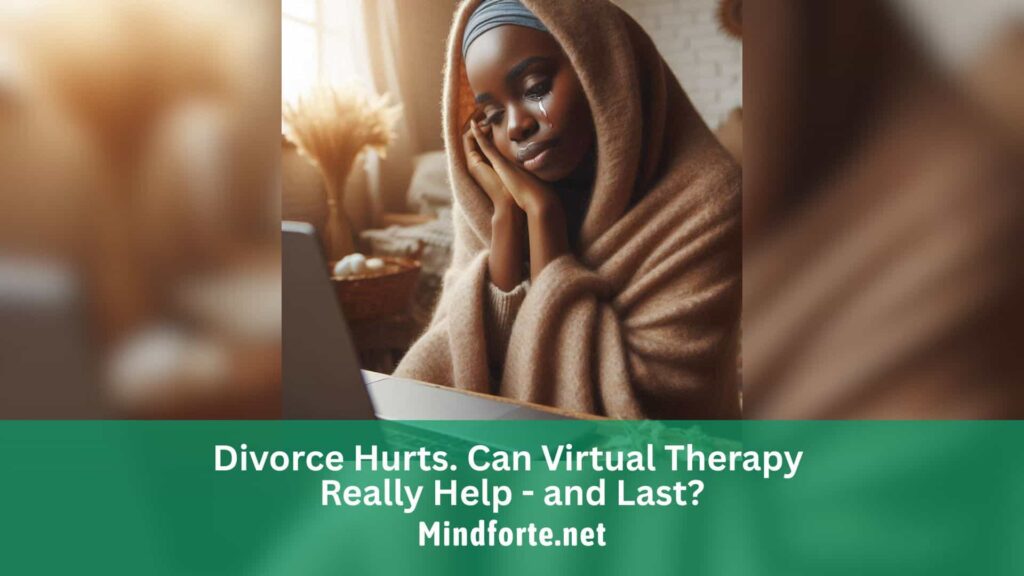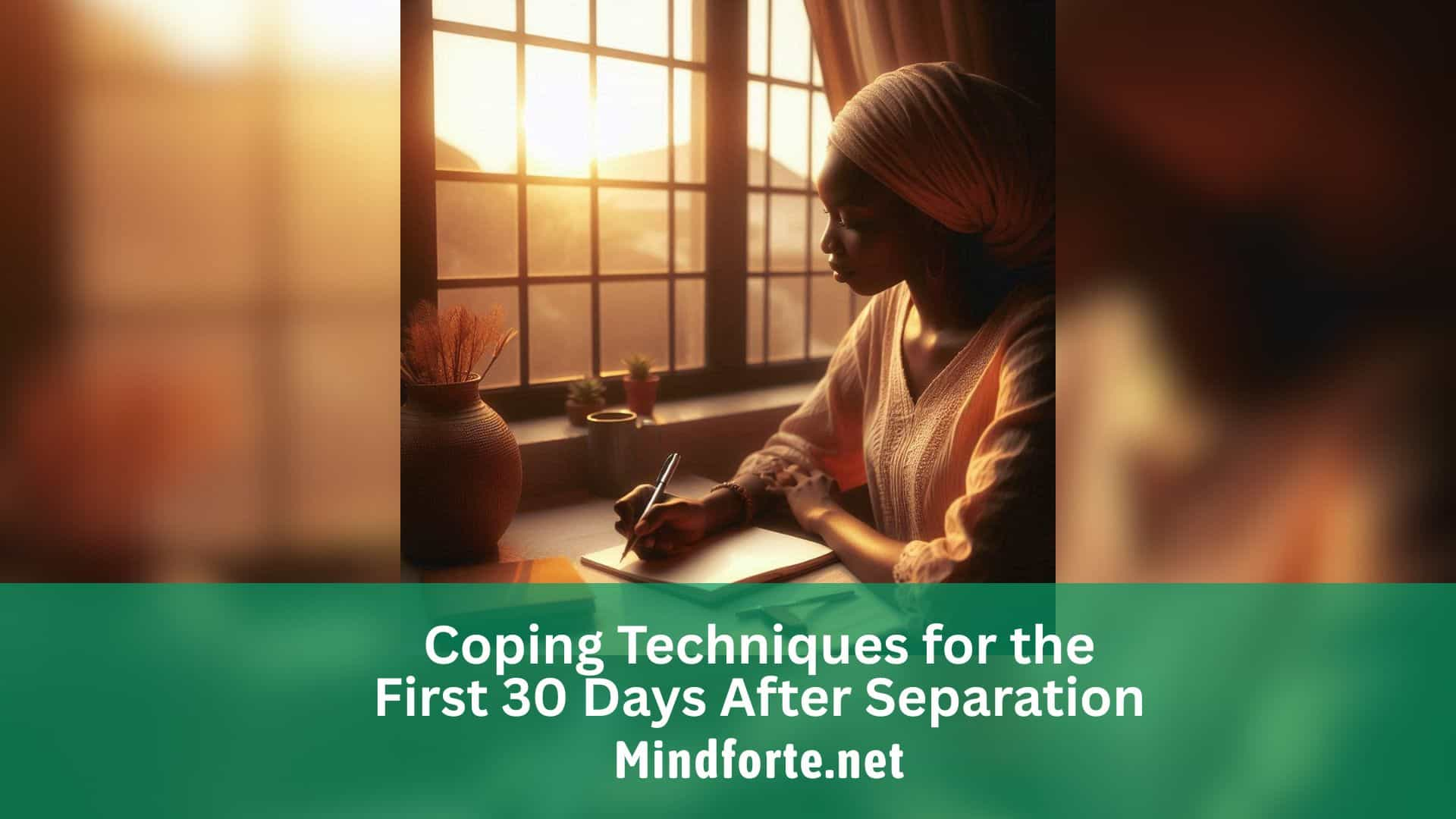Going through a divorce can feel like your world is falling apart.
And when distance – whether physical or emotional – gets added to the mix, it can leave you feeling stuck.
So if someone suggests online therapy, you might think, “That’s not for me.”
But what if virtual therapy isn’t only possible; what if it’s exactly what your healing needs right now?

Table of Contents
Why Waiting for In-Person Therapy Can Keep You Stuck
Let’s be honest: getting to a traditional therapy office isn’t always easy.
Between high costs, long waitlists, and fear of being judged – it can feel out of reach.
Divorce can make these barriers feel even higher.
Virtual therapy helps break them down, giving you an easier, safer way to start getting support.
Does Virtual Therapy Actually Work?
Yes, and research backs it up.
Studies show online couples therapy works just as well as in-person sessions – especially when it comes to feeling heard, building trust, and improving emotional health.
Therapists say tools like Zoom’s “mute button” can actually help people stay calmer and express themselves better.
What’s Happening in Nigeria
Mental health care in Nigeria is limited – with few trained professionals and a small slice of the health budget devoted to it.
But teletherapy (also known as online therapy or telepsychology) is creating new pathways.
Thanks to growing tech platforms and support from government and startups, therapy is entering homes – not just hospitals. It’s a huge leap toward more accessible care.
Why Online Therapy Can Be Life-Changing
- It’s easy to access: No need to drive, wait, or reschedule – just log in when it works for you.
- You can feel safer opening up: Being at home makes it easier to speak freely, without fear.
- It’s affordable and flexible: From budget-friendly plans to diverse therapist options, there’s something for everyone.
- Therapists see your real world: That glimpse helps them understand you better and build stronger connections.
A Few Things to Keep in Mind
Virtual therapy isn’t a one-size-fits-all.
If you’re in crisis, facing domestic abuse, or struggling with a weak internet connection, a blended or in-person option might work better.
What matters most is choosing what feels safe and helpful for you.
Ready to Take That First Step?
Think about what makes you feel safe enough to talk.
You can start by browsing trusted platforms or Nigerian services that match you with licensed therapists.
And if you’re wondering, “Do I really need therapy?” – that question alone might be a sign to explore support.
Why Mindforte Is All In
At Mindforte Psychology Clinic, we offer thoughtful, culturally sensitive therapy to people all across Nigeria and globally – through secure online sessions that meet you wherever you are.
Virtual therapy does not imply that the human touch will be removed. Rather, we bring that touch into your home, with compassion and care.
You Don’t Have to Wait Anymore
You might feel like you have to postpone therapy – until you’re stronger, until life is calmer.
But you don’t need permission or a special time to start healing. What you need is the right opportunity.
Book a session today: www.mindforte.net/booking.
Let the support come to you. Because you deserve to heal now – not later.
Just Something to Think About…
If help could walk into your living room instead of a clinic – what would that change?
Let us know below. Your story might help someone else take their first step.
References
- Lifestance. Is Online Couples Therapy as Effective as In-Person?
- The Divorce Project. The Rise of Digital Therapy Platforms for Divorce Support
- Wired. Virtual Sessions Made Me a Better Therapist
- Pulse Nigeria. Best Mental Health Platforms in Nigeria (2025)
- Professions.ng. Telepsychiatry in Nigeria: Prospects and Challenges
- CloudClinic.ng. Teletherapy: A Game-Changer for Mental Health in Nigeria
- Wikipedia. Online Counseling – Advantages
- TheBostonDivorceLawyer.com. Online Divorce Counseling: Benefits and Process
- TheDivorceProject.com. Online therapy platforms provide accessible divorce recovery resources
- TheDivorceProject.com. 70% of individuals in virtual therapy report improved well-being


